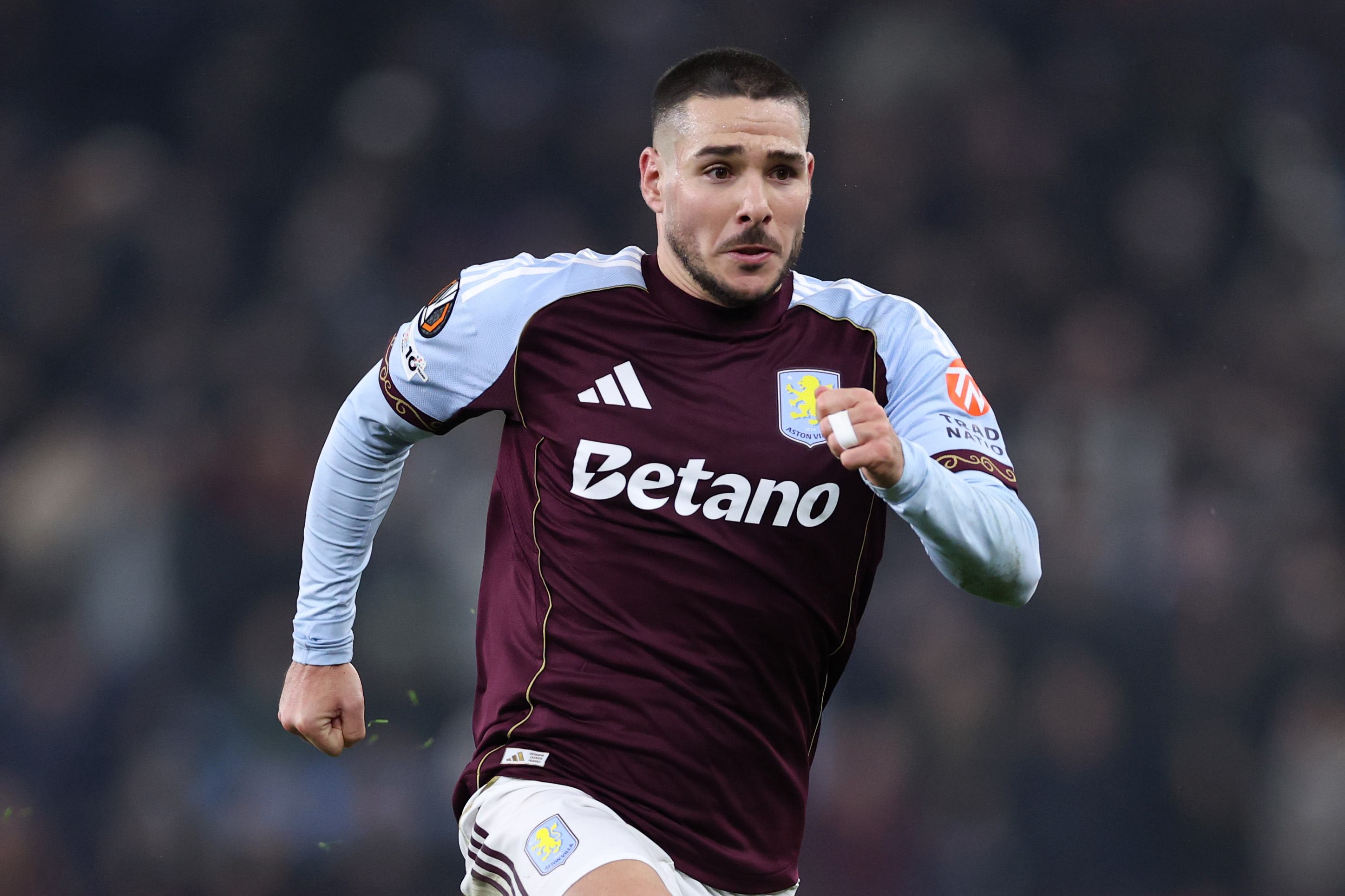Sol Campbell: One-on-One
The former Tottenham, Arsenal and England star chats controversial transfers, scurrilous rumours, and his non-existent acting career with FFT's Charlie Ghagan...
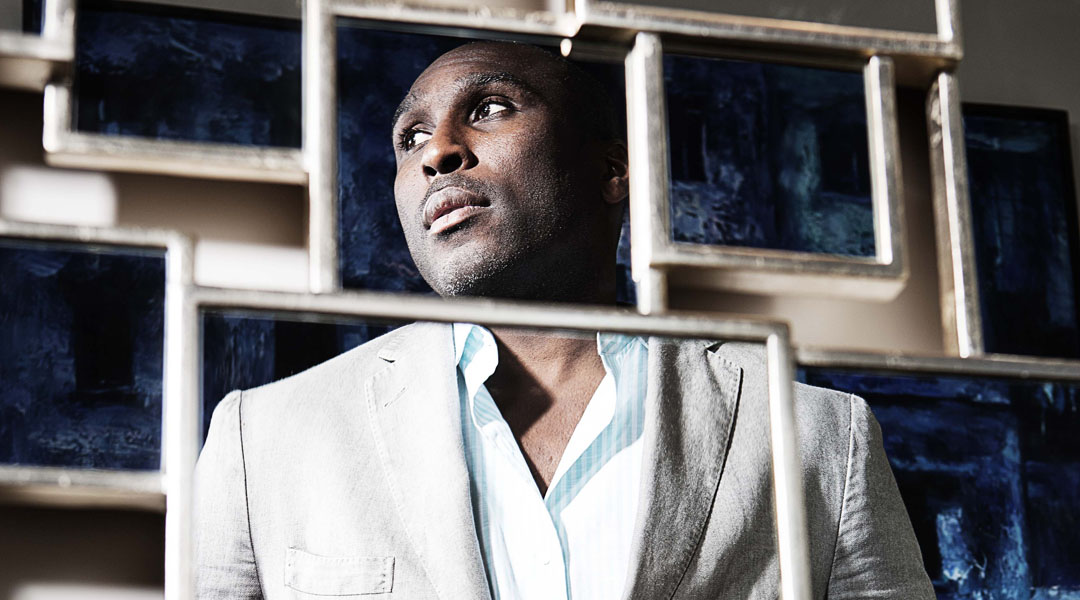
“Seriously, does anyone actually have a copy of that article? I’d love to see it.”
FFT is firing some hard-hitting readers’ questions at Sol Campbell, and we’ve just asked him about an oft-referenced interview he allegedly gave at Spurs in which he insisted he could never sign for Arsenal.
Date of birth - 18/09/74
Place of birth - Plaistow, London
Height - 1.88
Position - Centre-back
Clubs - Tottenham Hotspur, Arsenal, Portsmouth, Notts County, Newcastle United
Honours - League Cup, Premier League (x2), FA Cup (x4), Community Shield (x3)
England - 73 apps (1 goal)
“I heard it’s mentioned on my Wikipedia page – but I’ve never even done one!” protests the 39-year-old, who clearly hasn’t spent much time on the internet since hanging up his boots three years ago. We’re in the lounge of the former defender’s swanky London apartment, enjoying a cuppa along with the fine views of the River Thames, and Sol is on a roll. “It’s like people who say I’m in the movie Snatch. Did you see me in it? You can watch the entire movie and I can promise you this, I’M NOT IN IT!” Not for the first time today, he breaks into laughter as he reflects on the hearsay and controversy that seemed to follow him around from the very moment he did the unthinkable in 2001 by crossing the north London divide from N17 to N5.
Never comfortable in the public eye during a playing career in which he preferred to let his football do the talking, the married father-of-two admits getting so much off his chest in his biography has been somewhat theraputic.
“I feel like I’ve been holding my breath for such a long time, and now [blows hard], it’s all out there. Everyone has the right to do that, but some of my comments about the England captaincy have been taken to another galaxy.”
We’ll get back to that later, after we’ve addressed the many other headline-grabbing stories that bookmarked the last decade for Sol: the ‘Judas’ chants, the gay slurs which led to his brother’s imprisonment, the half-time walkout against West Ham in 2006 and the farce that followed at Notts County. And then there’s the drama on the pitch, from the two goals that never stood for England to the one that did in the Champions League final.
Regrets? Sol’s got a few, but as he tells us, he’s still got unfinished business in the game...
The best features, fun and footballing quizzes, straight to your inbox every week.
You started out as a striker and then
moved back to defence – why was that?
Andy Lane, via email
No, I actually started at the back. Then midfield, then sweeper, then centre-half, then forward and then midfield... then at Spurs I went up front in the youth team, but made my first-team debut at left-back! So I did a circle aged 10-20. No one was responsible, they just moved me around. That was good for my development. On the street as a kid you don’t care about positions, you’re everywhere, but kids don’t play on the streets like they used to – they’re all on iPads and PlayStations.
As the youngest of 12 children, how tight was money in east London as a kid? Did
you ever get caught up in trouble?
Barry Robins, via Facebook
Playing the arcades was my weak point, and I saw a lot of trouble, but I was wary not to get involved in it. For some reason I just knew that wasn’t the right way. I was afraid of my mum as well – and that should be the way. Money was very tight. But you learn how to make things last and how to treasure even the little things, like a tennis ball to play football with.
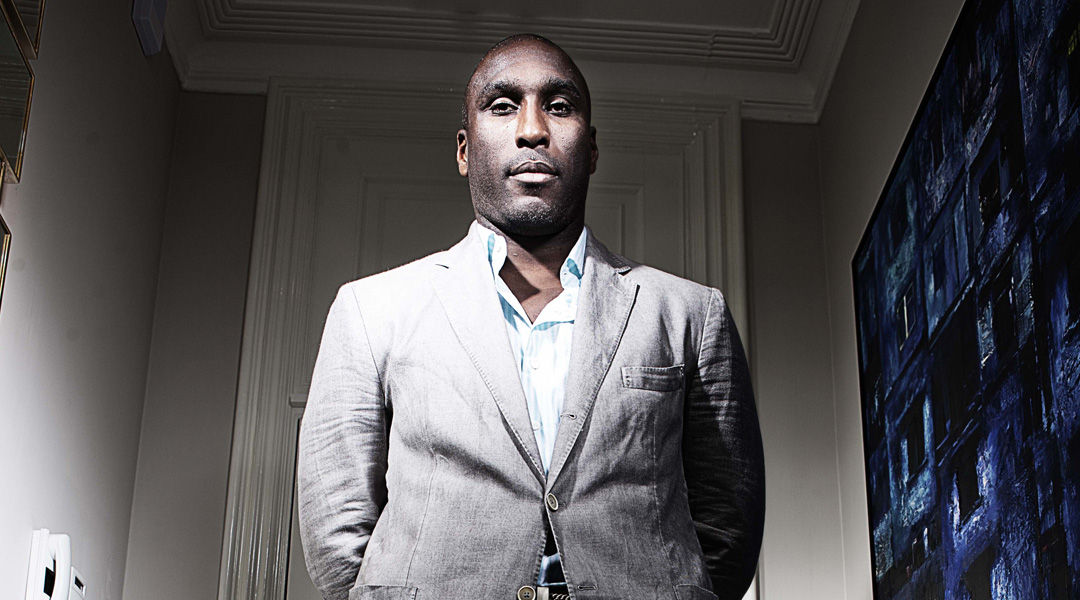
You were on the receiving end of a racist joke while at West Ham as a youth player, and quit for Spurs over it. If it wasn’t for that, might you have stayed with the club?
Clint Gibbs, Essex
Who knows? I was too young to think about my future in such a way. The coach said what he did and I just wanted to move on. At the time I’d had enough of control. I didn’t want
to be told I had to be here or there – I had enough of that at home. At 13, I just wanted to be free to play and enjoy football, on the streets or in the park. Obviously when you
get older there should be rules and structure, but at that age that’s how I felt.
I remember reading about your days at the FA’s school of excellence at Lilleshall, where you used to stay behind to do some extra work on maths. Were you the class swot?
Don Wood, via Facebook
I stayed behind because I had to catch up. Lilleshall was a lifesaver, really. I got out of London, I went to a really nice school with people who were happy to teach me. At home my parents were worried about working, so it was all me pushing to do homework. At 14, I had a lot of catching up to do. I was a bright kid but I was never going to completely catch up as I missed those formative years.
I didn’t tell my family about my first goal. No one really wanted to know and I was very shy.
Why did you change your name from Sulzeer?
John Adams, Horley
Because I didn’t like my name. I used to think, why does everyone in my family have names like John, Paul, Peter... and I’m Sulzeer? The change happened in my first youth tour with England. My name was blasted out over the Tannoy and they got it completely wrong. To make it easier I changed it to Sol and it stuck. It’s almost like a stage name, to be honest.
How did your family react when you got home from scoring on your Spurs debut against Chelsea in 1992? What a start!
Lisa Nichols, Watford
They didn’t know. I would go to football, come back, and no one battered an eyelid. I was literally left to my own devices. [FFT: Did you not want to share it with your family when you got home?] No, I didn’t tell them. No one
really wanted to know and I was very shy. They only found out about me when they started reading it in the papers. I never talked about my football, and that stuck with me.
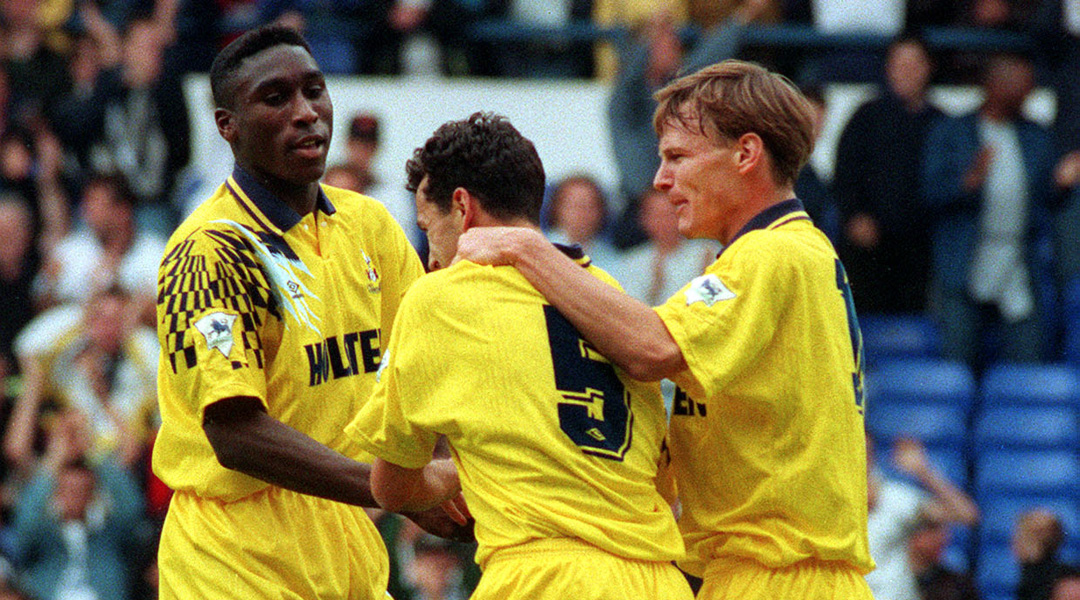
There was a period at Spurs where you would have at least one marauding run with the ball out of defence in every game. Was this something you planned?
Ed Lambert, Norwich
Because I used to play up front, I think I tried to reminisce to myself and say, “this is how you used to do it, Sol!” I used to run with the ball a lot. My team-mates were OK with it because I was almost like a rugby player when they charge through. Like when a winger drives forward, it naturally moves the whole team up. It was one thing getting up there,
but another getting back!
What was it like as a defender playing behind Ossie Ardilles’ famous five? Is it true he never worked on defending with his Spurs team?
Francis Santiago, London
Yeah, we never worked on it. If I’d had another five years on me, you could do that, but I was too young and inexperienced for such a system
People need to realise I did it proper at Spurs. If I didn’t do things properly then my performance would have showed. Some of my team-mates weren’t doing it on the pitch.
With everything that’s happened, it’s easy to forget what a brilliant nine years you
had at Spurs. What was your best memory?
Simon Wallace, Teddington
Scoring on my debut was special, as was winning my first cup, the Worthington Cup [vs Leicester in 1999]. There were special moments with players, too. When Jurgen Klinsmann arrived, I took a lot of interest in him. The way he acted, or lost it sometimes, after games. It was always the same routine: effing and blinding, flip-flops thrown all over the place, grabs a towel, straight in the shower [laughs]. But he really wanted to win and I liked that.
[FFT: What about the Spurs fans?] Hopefully some of them still appreciate what I did. There were a couple of seasons when I had to keep them up. I was 21, 22 and only missed one game. I enjoyed my time at Spurs, I just wish they had invested a bit more. And the turnover of managers was just too much for me. The progression just wasn’t there.
In your book you say the most Spurs paid you was £13,500 a week and you had “muppet team-mates on treble the money”. Why do you think the club was not rewarding you?
Elijah Hammond, Malden
When I say muppets, I was talking about guys on three times more than me, yet nowhere near the England team. They were on a great wage but not performing. I was on far less but I can say I was performing all the time – on and off the field. People need to realise I did it proper at Spurs. I was really disciplined. If I didn’t do things properly then my performance would have showed after time, and some of my team-mates weren’t doing it on the pitch. Rewards-wise, my contract was running down, then I found out in the papers I wasn’t going to be the best-paid player if I re-signed [chairman Alan Sugar had told Sol he would be], and I thought, ‘Why lie? I’m leaving’.
You have revealed that David Ginola liked a cigarette and an espresso at half-time at Spurs. With this is mind, do you think he was worth the big investment?
Ali Hart, via email
Oh, David was a wonderful player. Very strong, tall. If you gave him the ball, he could run at you 10 times and not be out of breath. But if you asked him to run back without the ball just once, it was really hard work for him! It was actually harder for him to run without the ball! [laughs] It was just a mind thing. Above all, he was a fantastic chester of the ball, like Mark Hughes. The ball would just drop at his feet.
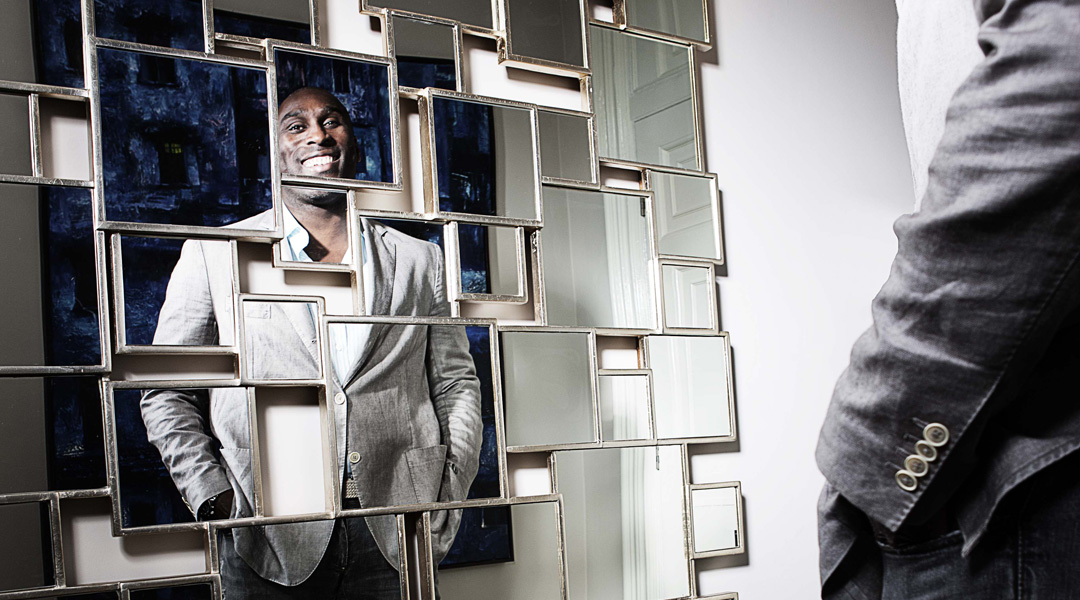
Is it right that when George Graham arrived at Spurs he wanted to replace you as captain with Tim Sherwood?
Spencer Ramsey, Hull
He never said it verbally, but yes he did. George arrived, it was clear he wanted Tim as captain, and I was like, that’s not happening. So they tried to work around it. I don’t think people realised how big I was going to become. I was 23, 24 years old and I had the strength and determination to say ‘no, I’m going nowhere, I’m an England player, I’m playing out of my skin – you might not like how I am but sorry, I am the future. So until I’m gone from this club it’s not going to happen.’ I didn’t verbally say that but how I carried myself said that. It’s quite sad really that people can lose sight of where they are and not look at the bigger picture. I found out for sure what they were doing when we played at Newcastle. I was standing in the tunnel, I had Alan Shearer right by my ear hole – he was making sure I could hear – saying to [former Blackburn team-mate] Sherwood: “Tim, have you taken the armband off him yet?” [FFT: How did you react to that?] I said nothing. I had a game and wasn’t going to let it disturb me. I’d say Tim now is pretty much how he was back then.
It sounds like you were keen to move abroad, both after leaving Spurs, and later when you left Arsenal. What was the closest you came?
Gabriel Richardson, via Facebook
Inter Milan was the closest [in 2001]. If AC Milan had come, I would have definitely gone. I could have spent five years abroad and come back. But I just felt at Inter... I looked at the training ground and thought, why don’t they fix it up? I can’t understand it when a club spends so much on players, yet ignores the training ground or the main ground. It was the same at Portsmouth. They had a chance to buy their training ground for just over £1 million and they didn’t do it.
You weren’t the first to cross the divide from Spurs to Arsenal, Pat Jennings being the biggest name. Why do you think
you were treated so differently?
DJ, via Facebook
Maybe because the fans loved me... maybe because the club didn’t get any money from me... maybe because of that article claiming I said I’d never play for Arsenal! This supposed one line, that someone went looking for with a magnifying glass, that I’ve never even seen.
Yes, I knew how people would react but that level was just… [shakes head]
What was going through your mind on your return to White Hart Lane with Arsenal, when you saw 4,000 balloons released with ‘Judas’ written on them?
Leon Bell, Alton
Football-wise, the crowd got me wired. I don’t think many in the game have played in one with that type of atmosphere, no chance. I felt on a different level – I was alive, it was an incredible kind of feeling.
But on an emotional level, it was disgusting. Yes, I knew how people would react but that level was just... [shakes head] there were biblical kinds of flags contradicting each other... there were drapes everywhere... all those balloons. And the faces! It was like people wanted to kill me with their expressions. There were men, women, children, black, white, Indian. It was just like, wow. So emotional, it took a lot to get through the game and that day.
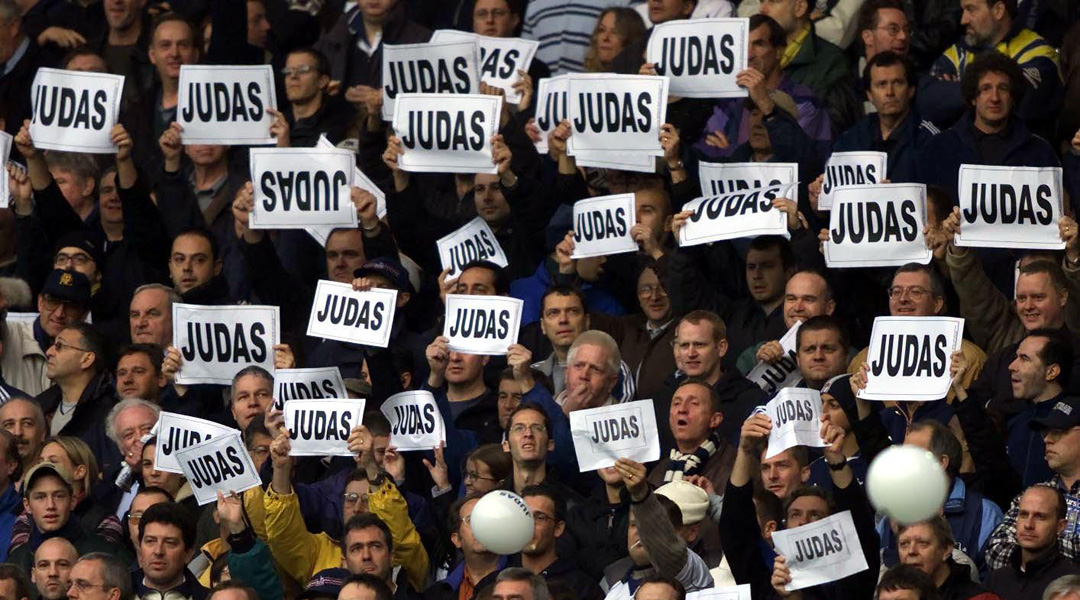
Have you made peace with your brother Tony, who you saw in the Tottenham end when you were getting abuse from the White Hart Lane crowd? Did you actually
see him join in with the chants?
B Power, Glasgow
I don’t think he was chanting, no – that would have been too much. But he was in there, and I couldn’t believe it. It’s amazing really, he could have been sat anywhere that day, but I happened to pick his face out. We’ve made a certain amount of peace. He’s always going to be a Tottenham fan, and that’s not a problem.
How did you react when your brother John was jailed for assaulting a man who suggested you were gay?
Emma Hay, via Facebook
That was tough. Yes, he had a fight, but the actual basis of that fight had no foundation. Nothing. And he went to prison for that. For me, to be accused of something you have not done, or is not you, is the worst thing. But my brothers were in an environment where they could not be protected, they were interacting with people on a different level. I could live in a bit of a bubble, but he was coming into contact with other football fans who wanted to get the upper hand, and he wasn’t used to that. It all spawned from an absolute cesspit of lies.
Every single player I saw was half-naked at the window, banging away and waving their tops around as they sang loudly and looked right at us. It was embarrassing.
Who do you think was responsible for starting the rumours about your sexuality?
Chad Smith, via Facebook
I don’t know. Some people are lazy with their observations and some people want to dig deeper and find out a bit more. And if you did dig deeper, you’d realise I’m just a normal guy. At the time I had my girlfriends, but I kept it low key. I didn’t want to show off. I didn’t want to have a new girlfriend every month and if I did I wouldn’t want to tell everyone. But when my brother was jailed, that’s when it really started to hurt me.
I remember hearing about Argentina’s gloating in front of the England team at France 98. Were you not tempted to do the same after we got revenge four years later?
Dean Carter, Kent
Well, that would have got us nowhere, and I think the class thing to do was not to do it back. Argentina didn’t show any class in France. They were on their team coach after the game, and every single player I saw was half-naked at the window, banging away
and waving their tops around as they sang loudly and looked right at us. It was embarrassing. I’ll never forget that.
You missed the 2003 FA Cup Final for Arsenal due to a red card for elbowing
Ole Gunnar Solskjaer. How gutted were
you over that?
Shane Mann, Lincolnshire
[Interrupting question] I didn’t elbow him. If you slow it down, you’ll see I touch him with the palm of my hand, and he goes down like a sack of whatever. That was the worst decision of my career, and it did the league and FA Cup for me. I’d played every game, including the semi-final, but that was my season over.
Is it true that you were relieved when the Arsenal Invincibles’ run finally ended after 49 games?
Stephen Cooper, Surrey
It was a shame that it had to end against Man United, but yeah, by then I was like ‘when will this finish?!’ [laughs]. It just kept building up. It was a wonderful achievement, don’t get me wrong, but in the end it felt like a relief, like it was time to move on.
I’d gladly give away scoring that goal if it meant winning the cup.
Which tournament exit with England hurt the most for you, Sol? And which of your two disallowed goals was the biggest blow: Argentina in 98 or Portugal in 2004?
Turlough Shiels, via Facebook
I was on the bench for Euro 96 but that was a big chance. At home, fantastic team, plenty of momentum after a slow start, and we just came whiskers away [blows out of cheeks].
As for the disallowed goals, team-wise we had a better team in 2004, and that goal would’ve taken us to the semis. We had a good team against Argentina in France, but that was only a second round match. Both defeats hurt, but that’s what drives me on now to become a manager. I’m doing my badges, and one day I’d love to win everything I didn’t as a player.
When you famously walked out at half-time against West Ham in January 2006, did part of you think you would never play football again? What did you do after that game?
Zane Stillwell, Hereford
I went to Brussels for a few days. I didn’t think I’d quit, but I’d got to the stage when I thought, I really need to get away and play abroad. I tried but it didn’t work out that way. I’d had enough of England, London, everything. I just wanted to go back to playing the game and worrying about winning - no more - to find a club where all I needed to worry about was winning.
The 2006 Champions League Final: have you ever felt such elation on a football pitch as the moment your goal went in, especially considering what a stressful few months you’d had? How much did that defeat hurt?
Bryon Weller, via email
That game showed how I’d got myself together again, but I’d gladly give away scoring that goal if it meant winning the cup. Barcelona were struggling, they were waiting for the second goal to go in, but we couldn’t get it. No one knew [at the time] apart from me and the Arsenal hierarchy, but that was my last game.
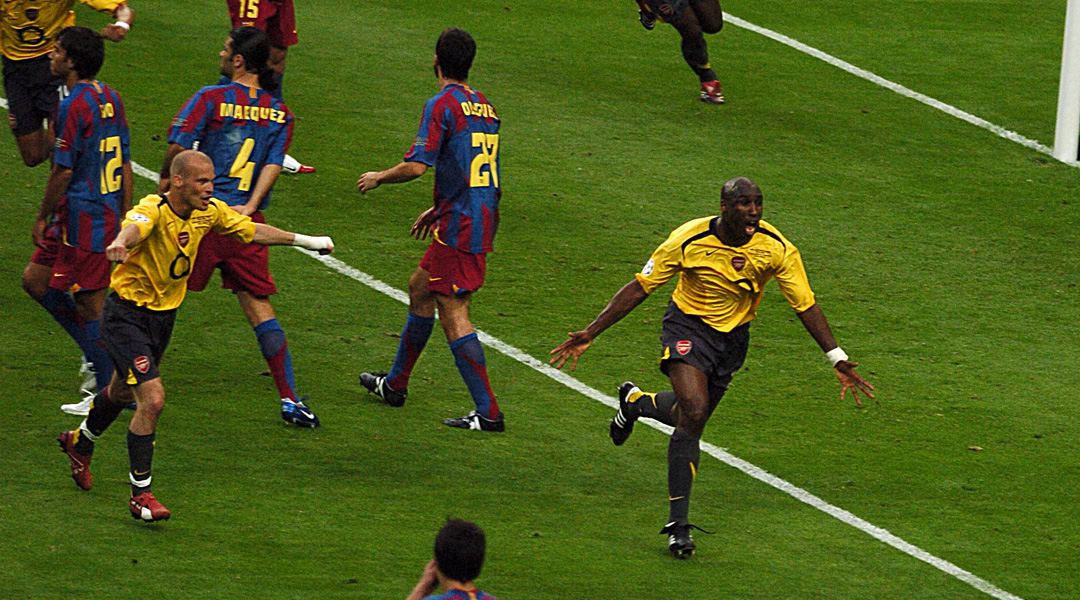
He would later recall you due to injuries,
but how annoyed were you with Steve McClaren for dropping you from his
England squad via text message in 2006?
Jen Cronin, Wrexham
I was devastated. It felt like everything I’d done before for England meant nothing. There was no appreciation, no phone call, just a text. [FFT: Were you not tempted to say no when he later recalled you due to injuries?] I didn’t think about him, I thought about doing the best for my country. I wouldn’t have minded if he’d come to me and said, “Look, Sol, you’re at Portsmouth now, you’re still in my thoughts but right now we’re going in this direction...”, something like that. That’s respect, and it means you sign off on a proper level.
You were 34 years old when you joined League Two Notts County, but is it true they offered you more money than any club in your whole career? How much was it, and how much did you actually see?
Will Reynolds, Cheshire
It was my biggest contract, and it was for five years – that’s when I should have woken up! I just started getting phone calls from ex-FA people, some business people, who had heard rumours about the new owners. And that, along with my intuition, raised concerns. If you have that sort of money, things should be getting fixed daily, but nothing ever did. [FFT: Have you spoken to Sven-Goran Eriksson since he signed you for the club?] No, Sven still hasn’t said sorry for getting me involved. All he’s got to do is say sorry.
People have said my comments would have carried more weight before, but sometimes it’s better to step away and reflect on things.
Have you thought about doing any more acting since retiring from football? I thought you were really good in Snatch.
Peter Webster, via email
There it is! [laughs] I think to act you need emotion, and I’ve got a lot of that... [pauses]... but then you’ve got to be willing to show that... I did look at the acting world, but my wife tells me it’s a strange world, and I’ve decided to pursue other things. [FFT: Rio Ferdinand told us he wanted to be the first black James Bond – would you fancy that role?] I could quite easily do it, yeah, but whether I could act it is another matter!
[FFT: Do you think there will ever be a black James Bond?] I like to think so. Whether it’ll happen in my time, I don’t know, but Bond seems to change every few films now, so I think that would be very cool.
What have you made of the reaction to the comments regarding institutional racism within the FA? If you felt so strongly about it, why did you wait so long to speak out?
Bill Rodgers, Bury
People have said to me that my comments [Sol believes that he would have been England captain for 10 years if he had been white] would have carried more weight before, but sometimes it’s better to step away and reflect on things before you come out and say them. When you’re still playing it can be chaos – there’s a lot of noise around whatever you say. But my book was a reflection, it’s what I’ve been through. The next person might come out and say it’s not like that [within the FA], but this is me and this is how I saw it.
'Sol Campbell: The Authorised Biography' by Simon Astaire is on sale now (Spellbinding Media)
 Join The Club
Join The Club





